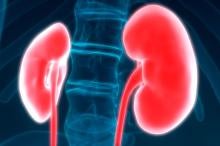A scoping review and analysis of a series of country experiences to inform the Chilean health financing reform
Objective
To analyze international health reform experiences to inform Chile’s health financing reform efforts.
Methods
A scoping review methodology was used. Six countries that met inclusion criteria were used for the comparative analysis: Canada, Denmark, Estonia, France, Slovenia, and Spain. A profile was prepared for each country describing the financing system, the structures in charge of managing the public health insurance system, and the institution responsible for financing and its attributions regarding healthcare providers.















